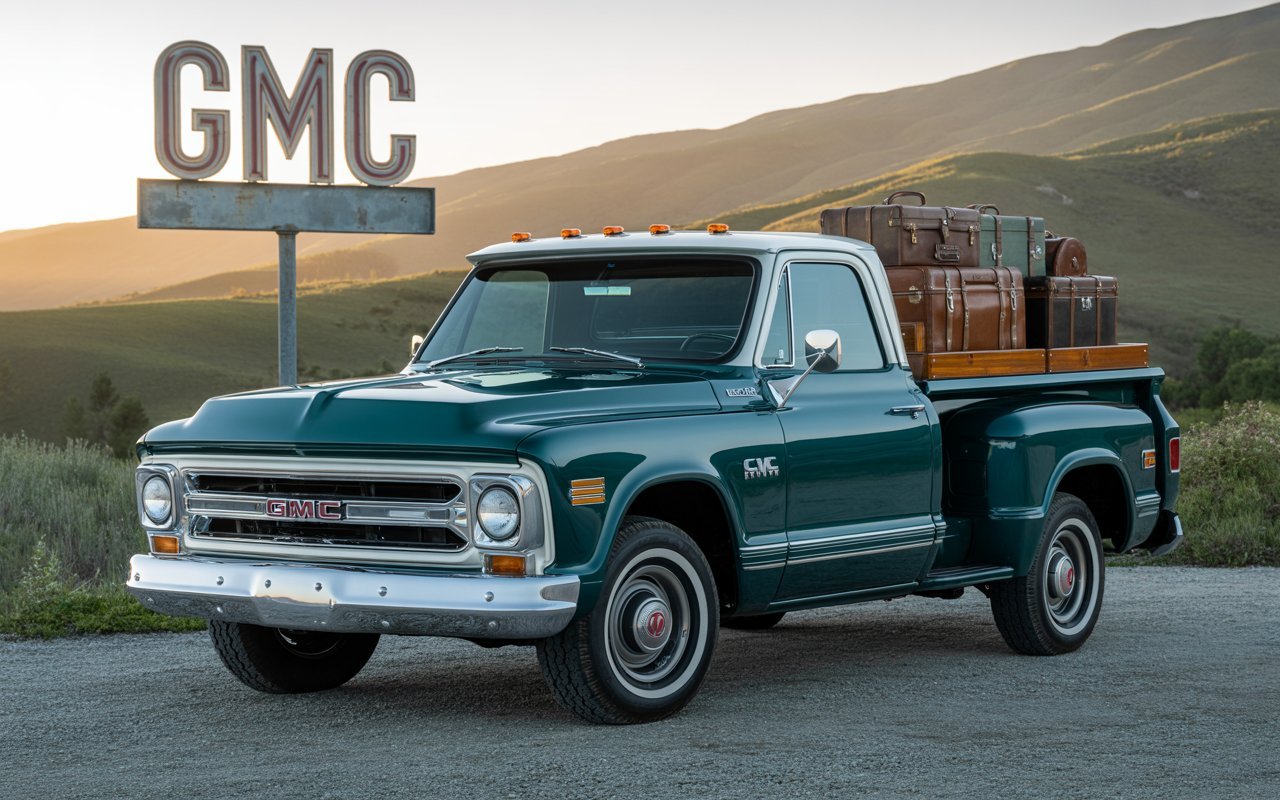If you’ve ever seen a bold GMC logo on a pickup truck or SUV and wondered “What does GMC stand for?” you’re not alone. Many drivers recognize the brand but don’t know the meaning behind its name. This curiosity is more than just trivia—it opens the door to understanding over a century of automotive history, American industry, and the evolution of one of the most trusted vehicle brands.
As someone who grew up in a family of car enthusiasts, I remember my uncle proudly explaining that his Sierra wasn’t just a “truck,” it was a GMC truck, with a heritage tied to durability and professional-grade engineering. That’s when I first realized the name GMC carries weight beyond three letters.
The Full Form of GMC
GMC stands for “General Motors Company.”
The name connects directly to its parent organization, General Motors, one of the largest and most influential automakers in the world. GMC was officially established in 1911 as a division dedicated to producing trucks and utility vehicles, though its roots go back to even earlier independent manufacturers absorbed by GM.
For latest Tech updates and future aviation coverage, visit our homepage.
The Origins of GMC
The GMC brand traces back to 1900, when Max Grabowsky founded the Rapid Motor Vehicle Company. Rapid became one of the earliest innovators in commercial trucks. In 1909, General Motors acquired Rapid along with the Reliance Motor Car Company. By 1911, these assets were merged into the new General Motors Truck Company—the foundation of today’s GMC.
During its early years, GMC produced trucks that helped build America’s infrastructure. From military vehicles in World War I and II to heavy-duty trucks that powered construction booms, GMC became synonymous with strength, reliability, and endurance.
GMC vs. Chevrolet: What Makes GMC Different?
One of the biggest questions that comes up after learning what GMC stands for is how it differs from Chevrolet, since both are GM brands and their trucks often look similar.
The distinction lies in positioning and features. Chevrolet has traditionally targeted everyday consumers, while GMC focused on professional-grade and premium markets. GMC trucks and SUVs often include more upscale trims, luxury interiors, and advanced technology.
For example, a GMC Sierra may share its core engineering with a Chevy Silverado, but the Sierra Denali edition offers a more premium experience, reflecting GMC’s emphasis on refinement alongside durability.
Why the GMC Name Matters Today
In a crowded automotive landscape, names can fade—but GMC has endured for more than a century. The reason? The brand consistently connects its name to trust, strength, and heritage.
When someone asks “What does GMC stand for?”, they’re not just asking for an acronym. They’re asking about a legacy of American craftsmanship.
Even today, GMC markets itself under the slogan “Professional Grade,” reminding customers that the brand is designed not only for daily driving but also for demanding professional use.
Challenges and Myths Around GMC
Despite its strong reputation, GMC faces a few misconceptions. One common myth is that GMC only makes trucks. In reality, the company produces a range of SUVs, including the popular Yukon and Acadia.
Another challenge lies in brand overlap with Chevrolet, which sometimes creates confusion. Many customers wonder if paying extra for a GMC is worth it. From personal experience test-driving both a Silverado and a Sierra, I noticed the difference in interior comfort, materials, and quiet cabin technology. That’s where GMC sets itself apart.
Real-World Examples of GMC in Action
To understand why GMC’s name continues to matter, consider its use across industries. Construction companies often rely on GMC heavy-duty trucks for hauling, while families trust GMC SUVs for long road trips.
During natural disasters, GMC’s larger models like the Sierra HD have been deployed for relief operations, transporting equipment through rugged terrain. In these real-world cases, GMC isn’t just a brand—it’s a lifeline.
How to Identify if a GMC Vehicle Is Right for You
If you’re considering buying a GMC, think about how you’ll use your vehicle. Ask yourself:
Do you need a truck for professional work and towing heavy loads? The GMC Sierra lineup is built for that.
Are you looking for a family SUV with premium comfort? The GMC Yukon offers luxury without sacrificing durability.
Do you want advanced technology and a refined feel? GMC often integrates features like Denali trims that make everyday driving feel upscale.
By aligning needs with GMC’s strengths, buyers can better appreciate what the brand truly stands for.
Visual Suggestions
A helpful visual for this article would be a timeline infographic showing GMC’s history—from the 1900s Rapid Motor Vehicle Company, through its 1911 founding, to its modern lineup. Another useful graphic would compare Chevrolet vs. GMC models side by side, illustrating their shared roots and differences.
Frequently Asked Questions
What does GMC stand for in cars?
It stands for General Motors Company, a division of General Motors specializing in trucks and SUVs.
When was GMC founded?
GMC was officially founded in 1911, though its origins trace back to the Rapid Motor Vehicle Company in 1900.
Is GMC better than Chevrolet?
Both share engineering, but GMC positions itself as more premium, with luxury trims and professional-grade features.
Does GMC only make trucks?
No. While trucks are core to its identity, GMC also produces SUVs like the Yukon, Acadia, and Terrain.
What is GMC’s slogan?
GMC markets itself with the slogan “Professional Grade.”
Conclusion
So, what does GMC stand for? Literally, it means General Motors Company. But symbolically, it represents more than an acronym. It embodies over 100 years of innovation, resilience, and trust in the automotive world.
Whether you see a GMC Sierra on a construction site or a Yukon on a family vacation, the letters GMC carry a heritage that blends strength with sophistication.




